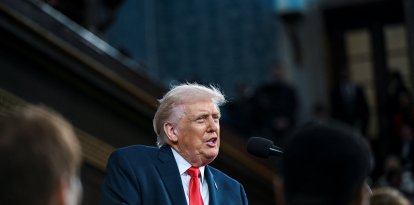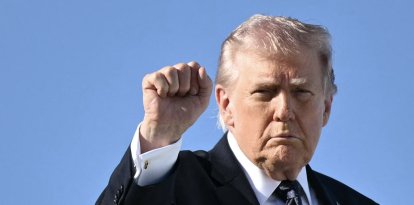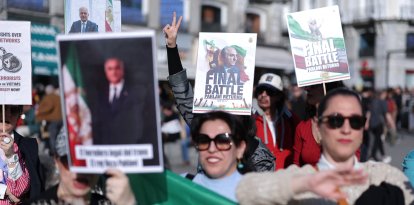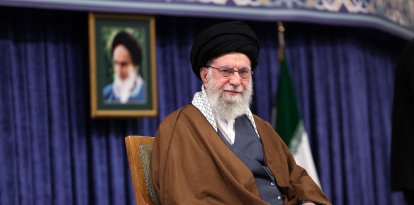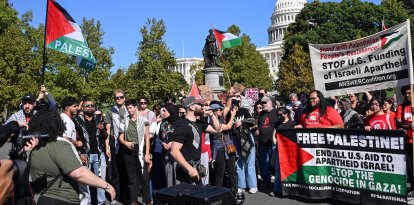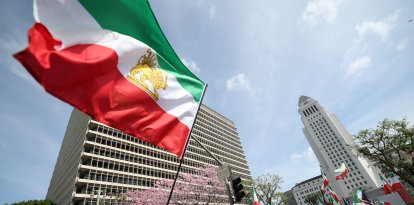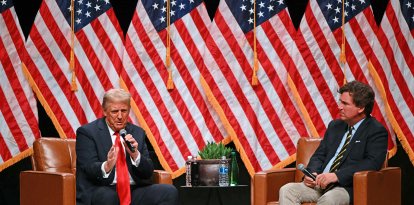Despite massive cutbacks, US remains committed to foreign aid, State Dept says
“Foreign aid is not a carrot or a stick in negotiations. If it’s needed, it’s needed. If it isn’t, it isn’t,” department spokeswoman Tammy Bruce told JNS.

Edificio de la sede del Departamento de Estado
The U.S. State Department’s “commitment to foreign aid has not changed,” Tammy Bruce, the department’s spokeswoman, insisted in response to JNS questions at the daily press briefing on Tuesday.
JNS asked Bruce about a reported letter from Palestinian Authority leader Mahmoud Abbas to U.S. Secretary of State Marco Rubio asking for the State Department to certify that Ramllah has ended its pay-for-slay program.
If the Trump administration doesn’t intend to restore foreign aid anyway, given the State Department’s massive cuts in that area, was it worth following up on the reported letter, JNS wanted to know.
Bruce balked at the implication that the Trump administration isn’t enthusiastic about doling out foreign aid.
“I do take issue immediately that we’re not—we don’t have any glee or excitement over handing out foreign aid,” she told JNS. “Our commitment to foreign aid hasn’t changed.”
Bruce said that aid must align with U.S. interests. “It is in our nature as Americans,” she said. “It’s what we do.”
The first Trump administration cut aid to the Palestinian Authority amid tensions between Washington and Ramallah. Trump signed the Taylor Force Act, which bans U.S. funding for the authority until Ramallah ditches its “pay-for-slay” program, into law in March 2018.
“Pay-for-slay” rewards terrorists for killing and maiming Israelis, paying out higher sums for the most violent and deadly crimes.
The law was named for Taylor Force, a U.S. Army veteran, whom a Palestinian terrorist killed in 2016 while the American was visiting Tel Aviv.
“Foreign aid is not a carrot or a stick in negotiations. If it’s needed, it’s needed. If it isn’t, it isn’t. We don’t use it in that fashion,” Bruce told JNS. “We are a country with incredible resources. We know that. And we have incredible responsibilities, and we do not shy away from them. It’s part of why we do what we do.”
“We want to be a part of the world,” she said. “We know we can help and we do.”
Dorothy Shea, the interim U.S. envoy to the United Nations, appeared to credit Abbas last month for ending the authority’s pay-for-slay policy, despite Abbas having said publicly that he would never cancel it “even if we have only one cent left.”
“We welcome the announcement by the Palestinian Authority that it will end the practice of offering cash payments to the families of those who carry out terrorist attacks, which for far too long has incentivized violence against Israeli civilians and set back the prospects of peace,” Shea said during a U.N. Security Council meeting.
JNS sought comment at the time from the U.S. mission to the United Nations about Shea’s remark and whether it believes that the pay-for-slay policy is actually canceled.
“This abhorrent practice needs to end now. We want to see actions, not words,” a spokesman for the U.S. mission told JNS. “We will closely monitor that the law is fully implemented and will consult with the Palestinian Authority and the Israeli government on developments.”
Bruce demurred on Tuesday in response to a question about the general relationship between Washington and Ramallah, focusing instead on Hamas-run Gaza.
“There is a constant, regular commitment to Gaza, to the Gazan people, certainly to one of our strongest—if not most stalwart—ally, Israel,” Bruce said, noting the recent Senate confirmation of Mike Huckabee as U.S. ambassador to Israel.
“So we’re very excited about the future. We are working constantly to have a ceasefire and to change the trajectory on the ground,” she said. “That has not stopped.”
Visits to Israel by Rubio and Steve Witkoff, Trump’s Middle East special envoy, have not corresponded with meetings in Ramallah or Bethlehem with Palestinian Authority leaders, as has generally been the case in prior administrations.
Hans Wechsel, a career diplomat who headed the U.S. office of Palestinian affairs within the Jerusalem embassy since August 2024, reportedly resigned at the end of March, as unhappiness grew over the direction of policy.
©️JNS













